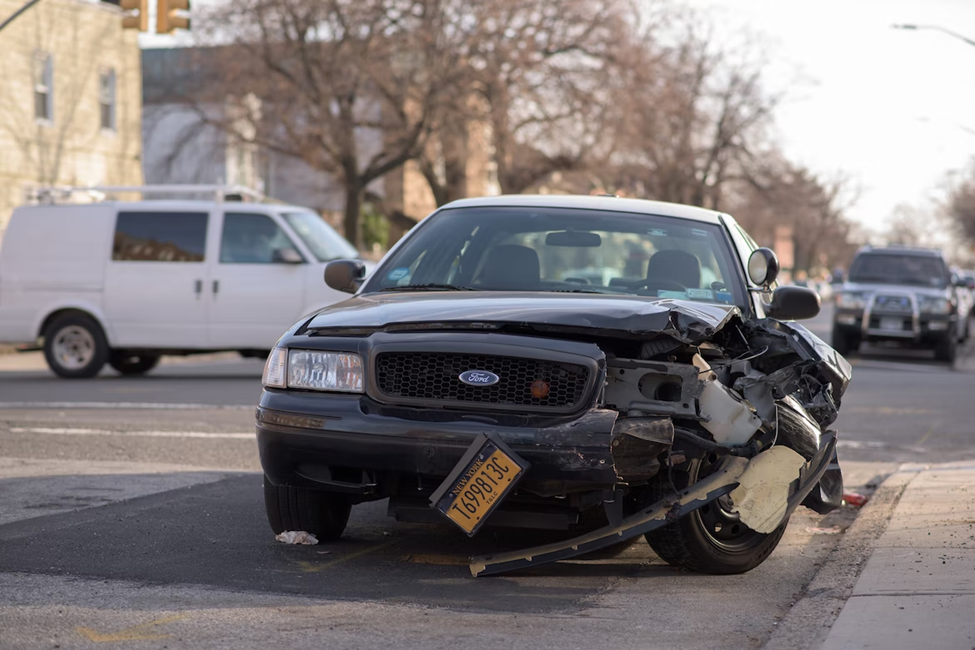& Other Stories,4,3.1 Phillip Lim,3,7 For All Mankind,6,A.P.C.,2,Abbey Lee Kershaw,19,Abby Champion,8,Abigail Breslin,2,Accessories,194,Accessorize,9,ACM Awards,15,Acne,3,Acne Paper,1,Ad Campaign,4606,Adam Levine,1,Adele,10,Adele Exarchopoulos,2,Adidas,53,Adolfo Dominguez,1,Adriana Lima,56,Adut Akech,23,Adwoa Aboah,9,Aerie,6,AG Jeans,3,Agent Provocateur,19,Agua Bendita,7,Agua de Coco,6,Alana Zimmer,1,Alberta Ferretti,24,Aldo,10,Aldo Martins,1,Ale by Alessandra,6,Alejandra Alonso,4,Alessandra Ambrosio,109,Alex Morgan,9,Alex Wek,1,Alexa Chung,27,Alexa Vega,1,Alexander McQueen,59,Alexander Vauthier,3,Alexander Wang,22,Alexandra Daddario,3,Alexandra Oleynik,1,Alexandre Vauthier,4,Alexis Ren,7,Ali Landry,1,Ali Larter,3,Alice + Olivia,10,Alice Dellal,3,Alicia Vikander,12,Alina Baikova,1,Aline Weber,10,Alison Brie,2,Alison Nix,3,Alla Kostromichova,1,Allison Williams,4,AllSaints,4,Allure,20,Altuzarra,4,Aly Michalka,1,Aly Raisman,1,Alyssa Miller,6,Alyz Henrich,1,Amal Clooney,22,Amanda Laine,1,Amanda Murphy,4,Amanda Norgaard,2,Amanda Seyfried,34,AMAs,45,Amber Anderson,2,Amber Heard,29,Amber Valletta,16,american apparel,9,American Eagle,1,Americana Manhasset,6,amfAR Gala,28,Amica,3,Amra Cerkezovic,1,Amy Adams,27,Ana Beatriz Barros,7,Ana de Armas,4,Ana Locking,5,Anabel Van Toledo,1,Anabela Belikova,1,Anais Mali,4,Anais Pouliot,8,Andi Muise,1,Andrea Huisgen,1,Andreea Diaconu,36,Andres Sarda,3,Andrew Garfield,1,Andy T,4,Angela Lindvall,1,Angelina Jolie,34,Animale,5,Anitta,8,Anja Konstantinova,2,Anja Rubik,46,Ann Taylor,4,Anna Brewster,1,Anna de Rijk,3,Anna Dello Russo,3,Anna Ewers,36,Anna Faris,1,Anna Kendrick,8,Anna Maria Jagodzinska,1,Anna Paquin,1,Anna Rudenko,1,Anna Selezneva,12,Anna Speckhart,3,Anna Sui,8,AnnaLynne McCord,5,AnnaSophia Robb,6,Anne Hathaway,49,Anne Vyalitsyna,11,Annie McGinty,1,Anthropologie,3,Antik Batik,1,Antje Traue,1,Antonio Berardi,3,Anya Kazakova,1,Anya Taylor-Joy,21,Ariana Grande,45,Ariel Winter,19,Arizona Muse,16,Arlenis Sosa,3,Armani,5,Armani Beauty,6,Armani Exchange,12,Armani Jeans,3,Ashlee Simpson,3,Ashleigh Good,6,Ashley Benson,25,Ashley Graham,41,Ashley Greene,26,Ashley Olsen,4,Ashley Park,4,Ashley Roberts,2,Ashley Smith,9,Ashley Tisdale,12,asos,24,Aubrey Plaza,6,Audrina Patridge,5,Aurelie Claudel,1,Ava Smith,4,AvantGarde,1,Avon,4,Avril Lavigne,5,Awards,602,Aymeline Valade,2,Badgley Mischka,1,BAFTAs,65,Balenciaga,34,Ballet Flats,3,Ballin,1,Bally,10,Balmain,59,Bambi Northwood-Blyth,10,Banana Moon,1,Banana Republic,13,Band of Outsiders,1,Baptiste Giabiconi,4,Bar Refaeli,16,Barbara Bui,1,Barbara Palvin,45,Barney's,2,Bath and Body Works,7,BaubleBar,5,BCBG MaxAzria,5,BCBGeneration,3,Beach Bunny,28,Beanpole,1,Beauty,1051,bebe,13,Bebe Rexha,2,Becky Gomez,7,Behati Prinsloo,55,Bella Hadid,158,Bella Thorne,81,Belstaff,1,Ben Watts,1,Benefit,5,Bergdorf Goodman,3,Bershka,27,BET Awards,12,Beth Behrs,1,Betina Lou,1,betsey johnson,1,Bette Franke,8,Beymen,3,Beyonce,55,Bianca Balti,27,Billabong,2,Billboard Magazine,9,Billboard Music Awards,24,Billie Eilish,25,Binx Walton,7,Bionada Castana,1,Birgit Kos,10,black dress,2,Blackpink,48,Blake Lively,55,Blanco,9,Blugirl,5,Blumarine,22,Blush Lingerie,1,Bo Don,1,Bobbi Brown,18,Bolon Eyewear,6,Bonds,3,Bongo Jeans,6,Bonprix,3,Boohoo,4,Bottega Veneta,15,Bourjois,4,Brad Kroenig,1,Brandon Maxwell,8,Bregje Heinen,9,Bridal,69,Bridget Malcolm,2,Brie Larson,9,BRIT Awards,37,Brit Marling,1,Britney Spears,13,Britt Maren,1,Brittany Hollis,1,Brooklyn Decker,5,Bulgari,37,Burberry,68,Burberry Prorsum,12,Business,13,Cailin Hill,1,Caitlyn Jenner,5,Calvin Klein,109,Calzedonia,21,Camera,1,Cameron Diaz,8,Camila Cabello,26,Camila Morrone,9,Camilla Belle,10,Camilla Skovgaard,1,Camille Rowe,11,Candice Huffine,1,Candice Swanepoel,145,Cannes Film Festival,100,Cara Delevingne,125,Cardi B,20,Cargo Pants,1,Carla Crombie,3,Carlo Pazolini,1,Carly Rae Jepsen,7,Carmen Electra,4,Carmen Kass,4,Carola Remer,1,Carolina Herrera,36,Caroline Brasch Nielsen,7,Caroline Flack,2,Caroline Middleton,1,Caroline Trentini,7,Carolyn Murphy,12,Carrie Underwood,5,Cartier,18,Carven,5,Cassadee Pope,1,Cate Blanchett,19,Caterina Ravaglia,1,Catherine McNeil,7,Cato van Ee,2,Catrinel Menghia,1,Celebrity,5475,Celia Becker,1,Celina Seilinger,1,Celine,25,Cerruti,1,CFDA Fashion Awards,24,Chad White,1,Chanel,229,Chanel Iman,11,Chantal Stafford,1,Chantelle Lingerie,3,Charli XCX,27,Charlize Theron,27,Charlott Cordes,1,Charlotte Free,1,Charlotte Mckinney,10,Charlotte Olympia,2,Charlotte Tilbury,7,Charlotte Tomaszewska,1,Cheap Monday,5,Cheryl Cole,12,Chiara Baschetti,1,Chiara Ferragni,17,Chip Chop,1,Chloe,32,Chloe Lecareux,1,Chloe Moretz,23,Chloe Norgaad,4,Chloe Sevigny,2,Chopard,5,Chopard Imperiale,1,Chrissy Teigen,37,Christian Louboutin,34,Christina Aguilera,4,Christina Hendricks,8,Christina Ricci,7,Christopher Kane,2,Christy Turlington,14,Chrome Hearts,2,Ciara,7,Cindy Crawford,16,Cindy Sherman,1,Cintia Dicker,8,Claire Danes,9,Clara Alonso,3,Clarins,1,Claudia Merikula,1,Claudia Schiffer,8,Cle de Peau Beaute,5,Clemence Poesy,3,Clinique,11,clothing,26,Clothing Line,1,Coach,52,Coachella,50,Cobie Smulders,7,Coca Cola,3,Coco de Mer,4,Coco Rocha,18,Codie Young,2,Colcci,18,Coleen Rooney,1,Comic-Con,17,Constance Jablonski,24,Constance Wu,2,Converse,13,Coperni,5,Cora Keegan,3,Corello,1,Corinna Drengk,1,corset,1,Cosmopolitan,47,Costume Denmark,1,Courtney Robertson,1,Cover,229,CoverGirl,4,CR Fashion Book,12,Cris Urena,3,Cristina Tosio,2,Croatia,1,Crumpet,1,Crystal Reed,3,Crystal Renn,2,Cushnie Et Ochs,9,Daisy Lowe,13,Daisy Ridley,1,Daisy Short,1,Dakota Fanning,30,Dakota Johnson,34,Dani Thorne,1,Daniel Wellington,1,Daniela Braga,5,Danielle Lloyd,2,Daphne Groeneveld,9,Daria Strokous,9,Daria Werbowy,15,David Beckham,11,David Jones,8,David Koma,3,David Yurman,20,Davidoff,1,DAY Birger et Mikkelsen,1,Dazed and Confused,10,Debby Ryan,6,Debenhams,3,Deepika Padukone,6,Delpozo,1,Demi Lovato,20,Demi Moore,8,Denim,8,Denim jacket,1,Desigual,9,Devon Windsor,4,Diane Kruger,16,Diane von Furstenberg,10,Dianna Agron,3,Diesel,21,Dinara Chetyrova,1,Dior,234,Dior Homme,9,Dita Von Teese,13,DKNY,48,DL1961,8,Doc Martens,1,Dolce and Gabbana,116,Dolce Vita,3,Donna Karan,15,Dorothea Barth Jorgensen,2,Doukissa Nomikou,1,Doutzen Kroes,50,Dr. Martens,1,Dream Out Loud,3,Dree Hemingway,6,dresses,19,Drew Barrymore,2,Dries Van Noten,1,Dsquared2,9,Dua Lipa,60,Duckie Thot,1,Dulce Maria,1,duMade,1,Dunhill,2,Duvetica,1,Ebay,1,Eberjey,2,Edie Campbell,17,Edita Vilkeviciute,46,Editorials,1688,Ego and Greed,1,Eiza Gonzalez,7,Elena Peminova,1,Elena Sudakova,1,ElevenParis,3,Elie Saab,47,Elie Tahari,2,Elisa Sednaoui,3,Elisabetta Franchi,6,Eliza Cummings,7,Eliza Doolittle,2,Elizabeth and James,4,Elizabeth Banks,10,Elizabeth Debicki,6,Elizabeth Hurley,5,Elizabeth Olsen,11,Ellassay,1,Elle,209,Elle Fanning,44,Elle Women in Hollywood Awards,6,Ellie Goulding,9,Elsa Hosk,58,Elsa Pataky,4,Elyse Saunders,1,Elyse Taylor,2,Emilia Clarke,21,Emilia Wickstead,2,Emilio Pucci,30,Emily Blunt,21,Emily Didonato,26,Emily Ratajkowski,123,Emily Senko,2,Emma Appleton,1,Emma Maclaren,2,Emma Roberts,32,Emma Stone,53,Emma Watson,75,Emmanuelle Chriqui,1,Emmy Awards,55,Emmy Rossum,17,Emporio Armani,21,EnC,1,Eniko Mihalik,8,Erdem,11,Erin Brady,2,Erin Heatherton,18,Erin Wasson,11,Ermanno Scervino,10,Escada,12,Escorpion,1,Esprit,12,Esquire Magazine,19,Essie,3,Estee Lauder,25,Ester Evans,1,Esther Heesch,3,Etam,14,Etro,19,Etude,2,Eurowoman,1,Eva Herzigova,7,Eva Longoria,27,Eva Mendes,5,EXO,1,Express,8,Fabi Shoes,1,Fall 2012,1,Faretta,3,Fashion,546,FCUK,2,Fei Fei Sun,15,Felicity Jones,17,Fendi,55,Fenty,47,Fergie,1,Ferragamo,30,Filippa K,3,Fitness,5,FKA twigs,5,Flare Magazine,5,Flaunt Magazine,12,Flavia De Oliveira,2,Florence Pugh,21,Footwear,167,For Love and Lemons,40,Forever 21,21,Forever New,1,Forum,1,Fossil,1,Fragrance,158,Fran Summers,1,frangrance,2,Frankies Bikinis,14,Freak Factory,1,Frederick's of Hollywood,6,Free People,134,Freida Pinto,9,Freja Beha Erichsen,34,French Connection,2,Frida Gustavsson,14,Furla,12,Gaetano Perrone,1,Gal Floripa,4,Gal Gadot,12,GAP,18,Gareth Pugh,1,Gas Jeans,1,Gemma Arterton,5,Gemma Ward,1,Georges Chakra,2,Georgia Fowler,14,Georgia Frost,1,Georgia Jagger,4,Georgia May Jagger,14,Georgia Salpa,4,Georgina Dorsett,1,Georgina Stojiljkovic,1,Gerard Darel,1,Germaine Kruip,1,Gertrud Hegelund,2,Giambattista Valli,10,Giedre Dukauskaite,1,Gigi Hadid,208,Ginta Lapiņa,14,GIORGIO ARMANI,41,Gisele Bundchen,112,Gisele Intimates,1,Giuliana Rancic,1,Giuseppe Zanotti,9,Giveaway,6,Givenchy,65,Glamour,47,Gok Wan,1,Golden Globes,128,Good American,5,GQ Magazine,53,Grace Elizabeth,31,Grace Hartzel,5,Gracie Carvalho,5,Graff Diamonds,9,Grammys,100,Grazia,13,Gucci,134,Guerlain,13,Guess,55,Guinevere van Seenus,3,Gwen stefani,9,Gwyneth Paltrow,15,H and M,273,H.E. by Mango,5,Hailee Steinfeld,29,Hailey Bieber,72,Hailey Clauson,23,Hailey Gates,1,Hale Bob,1,Haley Bennett,2,Halle Bailey,5,Halle Berry,14,Halloween,24,Halsey,9,Hana Jirickova,14,Hannah Davis,5,Hannah Ferguson,12,Hannah Holman,2,Hannelore Knuts,1,Hare,1,Harper's Bazaar,153,Harry Styles,9,Harry Winston,3,Hartje Andresen,1,Hayden Panettiere,4,Health,169,Heather Marks,2,Heidi Klum,49,Heidi Mount,3,Helen Flanagan,12,Helena Bonham Carter,1,Helena Christensen,13,Hello Kitty,6,Helmut Lang,4,Heloise Guerin,1,Hermes,15,Herve Leger,15,Hilary Duff,5,Hilary Rhoda,7,Hilary Swank,5,Hobo,1,Hogan,4,Holland Roden,7,Holly Rose,1,Hoodies,2,House of Harlow 1960,7,House of Holland,2,HoYeon Jung,4,Hudson Jeans,3,Hugo Boss,21,Hunkemoller,14,Hyoni Kang,2,i-D Magazine,15,ICEBERG,3,Iekeliene Stange,2,Ieva Laguna,2,Iggy Azalea,9,iHeart Radio Music Awards,23,Illamasqua,3,Ilvie Wittek,2,Imaan Hammam,18,Imogen Poots,3,Imogen Thomas,3,Inamorata,6,Indya Moore,4,InStyle,22,InStyle Awards,13,Interview,26,Intimissimi,26,Intropia,1,InWear,1,Ireland Baldwin,7,Irina Nikolaeva,1,Irina Shayk,122,Iris Law,7,Iris Strubegger,1,IRO Jeans,3,Iryna Rozhik,1,Isabel Lucas,3,Isabel Marant,18,Isabeli Fontana,58,Iselin Steiro,3,Isla Fisher,7,Issa London,1,Ivy Park,7,Iza Olak,1,Izabel Goulart,10,J Brand,1,J. Mendel,13,Jac Jagaciak,7,Jackets,5,Jacquelyn Jablonski,8,Jacquemus,11,Jacquetta Wheeler,1,Jaeger,3,Jaime King,1,Jalouse,4,Jamie Chung,6,Jana Knauerová,1,Jane Iredale,1,Janini Milet,1,January Jones,3,Jasmine Sanders,4,Jasmine Tookes,26,Jason Wu,11,JCrew,24,Jean Paul Gaultier,14,Jeans,10,Jeans West,1,Jeff Tse,2,Jeffrey Campbell,10,Jehane Gigi Paris,2,Jelena Ristic,3,Jenna Dewan,13,Jenna Ortega,5,Jennifer Aniston,28,Jennifer Garner,7,Jennifer Hawkins,3,Jennifer Hudson,2,Jennifer Lawrence,97,Jennifer Lopez,112,Jennifer Love Hewitt,4,Jennifer Massaux,1,Jennifer Nicole Lee,6,Jenny Packham,21,Jenny Sinkaberg,2,Jesinta Campbell,1,Jessica Alba,36,Jessica Biel,10,Jessica Chastain,32,Jessica Gomes,1,Jessica Hart,7,Jessica Miller,2,Jessica Perez,1,Jessica Simpson,4,Jessica Stam,12,Jewelry,109,Ji-Young Jung,1,Jil Sander,7,Jill Stuart,4,Jimmy Choo,62,Joan Smalls,40,Joanna Krupa,11,John Galliano,2,John Hardy,5,John Varvatos,1,Johnny Depp,2,Joie,1,Jon Kortajarena,1,Joop,2,Jordin Sparks,3,Jordyn Woods,5,Josefien Roderman,1,Josefina Cisternas,1,Josephine Skriver,35,Jourdan Dunn,21,Joy Bryant,1,Judith Leiber,1,Juicy Couture,39,Juju Ivanyuk,2,Julia Dunstall,3,Julia Faria,1,Julia Fox,11,Julia Hafstrom,6,Julia Ivanyuk,1,Julia Johansen,1,Julia Nobis,12,Julia Restoin Roitfeld,1,Julia Roberts,7,Julia Saner,3,Julia Stegner,8,Juliana Imai,2,Julianne Hough,17,Julianne Moore,6,Julie Bowen,1,Juliette Lewis,2,Julija Steponaviciute,3,June Sauren,1,Just Cavalli,9,Justin Bieber,9,Jyothsna Chakravarthy,1,Kacey Musgraves,2,Kacper Kasprzyk,1,Kaia Gerber,101,Kaley Cuoco,18,Kanye West,12,Karen Elson,15,Karen Millen,8,Karen Walker,3,karl Lagerfeld,37,Karlie Kloss,120,Karlina Caune,5,Karline Caune,1,Karmen Pedaru,31,Karolina Kurkova,10,Kasia Struss,6,Kasia Szwan,1,Kat Dennings,1,Kat Graham,5,Kat Hessen,1,Kat Von D,1,Katarina Ivanovska,3,Kate Beckinsale,15,kate bosworth,14,Kate Hudson,31,Kate King,2,Kate Mara,12,Kate Middleton,169,Kate Moss,86,Kate Spade,20,Kate Upton,64,Kate Walsh,1,Kate Winslet,17,Katheine Heigl,1,Katherine Jenkins,1,Kati Nescher,5,Katie Fogarty,1,Katie Holmes,16,Katrin Thormann,5,Katsia Zingarevich,1,katy perry,81,Ke$ha,1,Keds,3,Keira Knightley,28,Kelly Brook,16,Kelly Defina,1,Kelly Gale,1,Kelly Osbourne,3,Kelly Rowland,3,Kendall Jenner,258,Kendra Spears,4,Kenneth Cole,2,Kenzo,12,Kerry Washington,6,Khloe Kardashian,20,kidswear,20,Kiernan Shipka,5,Kim Kardashian,224,Kim Sears,5,Kimberley Garner,2,Kinga Rajzak,2,Kirsi Pyrhonen,2,Kirsten Dunst,12,KKW Beauty,6,Klara Wester,1,Kohl's,4,Kourtney Kardashian,22,Kristen Bell,10,Kristen Dunst,2,Kristen McMenamy,3,Kristen Stewart,93,Kristina Gromovaite,1,Kristina Nikolic,1,Kristina Romanova,1,Kristy Hinze,1,Kristy Kaurova,1,Kurt Geiger,9,Kylie Cosmetics,14,Kylie Jenner,123,Kylie Minogue,10,L'Officiel,24,L'Oreal,28,La Perla,18,La Senza,7,lace dress,4,Lacoste,5,Lady Gaga,45,Laetitia Casta,14,Lais Ribeiro,23,Lana del Rey,20,Lancaster Paris,6,Lancome,28,lanvin,30,Lara Stone,24,Lascana,2,Laura Marano,2,Laura Mercier,2,Laura Vandervoort,3,Lauren Goodger,1,Lauren Rippingham,1,Lauren Sanchez,6,Lauren Young,1,Lea Michele,19,Lea Seydoux,13,LeAnn Rimes,1,Leather Dress,1,Lee Cooper,1,Lee Jia Xin,1,Leighton Meester,10,Leila Goldkuhl,2,Lela Rose,1,Leni Klum,1,Leonisa,10,Les Copains,1,Leticia Z,2,Levis,19,Lexi Boling,8,LF Stores,7,Liam Hemsworth,2,Liberty London,1,Lida Fox,1,Lifestyle,105,Ligne Roset,1,Lila Moss,13,Lili Reinhart,4,Lily Aldridge,47,Lily Allen,5,Lily Collins,32,Lily Donaldson,19,Lily James,13,Lily Rose Depp,19,Lina Zuluaga,1,Linda Farrow,5,Linda Vojtova,5,Lindex,6,Lindsay Ellingson,10,lindsay Lohan,8,Lindsey Morgan,1,Lindsey Vonn,2,Lindsey Wixson,15,Lingerie,503,Linnea Regnander,1,Lip Gloss,2,lipsy,9,Lisanne De Jong,1,Littlewoods,3,Liu Jo,15,Liu Wen,30,Liv Tyler,6,Liya Kebede,17,Lizzo,3,Loewe,21,Logan Hollowell,9,London Fashion Week,41,Longchamp,13,Lookbook,1616,Lorde,3,Loro Piana,5,Lorraine Van Wyk,1,Lottie Moss,17,Lou Doillon,1,Louis Vuitton,172,Lourdes Leon,9,Love Culture,1,LOVE Magazine,9,Lovers + Friends,4,LoveShackFancy,11,Lucy Boynton,2,Lucy Hale,19,Lucy Liu,4,Lui Magazine,5,Luisa Bianchin,1,Luisana Lopilato,2,Luna Bijl,16,Lupita Nyong'o,29,MAC,86,Macy's,5,Madame Figaro,20,Madewell,16,Madison,2,Madison Beer,4,Madison Headrick,6,Madisyn Ritland,2,Madonna,10,Magdalena Frackowiak,16,Maggie Rizer,1,Maisie Williams,5,Maison Michel,1,Maison Scotch,1,Maite Perroni,1,Maitland Ward,1,Maja Mayskär,2,Maje,8,Make Up Academy,5,Make Up For Ever,4,Malaika Firth,1,Malgosia Bela,20,Malin Akerman,5,Mandy Moore,4,Mango,119,Manolo Blahnik,5,Marc Jacobs,81,Marc O Polo,3,Marchesa,6,Marella,10,Margaret Qualley,8,Margot Robbie,62,Maria Menounos,15,Maria Sharapova,15,Maria Sokolovski,1,Maria Valentina,1,Mariacarla Boscono,26,Mariah Carey,9,Mariana Idzkowska,1,Marie Claire,79,Marina Rinaldi,2,Marine Vacth,1,Marion Cotillard,20,Marique Schimmel,1,Mariya Ahchieva,1,Marks and Spencer,17,Marlena Szoka,2,Marloes Horst,12,Marlon Teixeira,10,Marni,8,Martha Hunt,34,Martha Plimpton,1,Martina Dimitrova,1,Marwood,1,Mary Kate Olsen,5,Mary Katrantzou,2,Mary-Kate,3,Maryna Linchuk,4,Massimo Dutti,40,Matchless,1,Maurie and Eve,1,Mavi Jeans,5,Max Azria,3,Max Factor,3,Max Mara,32,Maxim,32,MaxMara,6,Mayara Rubik Marchi,1,MAYBELLINE,14,Megan Fox,50,Megan Gale,1,Megan Williams,2,Megan Young,1,Meghan Collison,6,Meghan Markle,32,Melanie Laurent,1,Melinda Messenger,1,Melissa Rauch,1,Melissa Tammerijn,1,Melo Dagault,1,Melodie Monrose,2,Menswear,166,Messika,11,Met Gala,126,Metrocity,1,Mica Arganaraz,13,Michael Kors,90,Michaela Kocianova,2,Michelle Buswell,1,Michelle Hunziker,2,Michelle Keegan,4,Michelle Monaghan,3,Michelle Rodriguez,1,Michelle Trachtenberg,1,Michelle Williams,11,Mila Jovovich,1,Mila Kunis,17,Milagros Schmoll,1,Milan Fashion Week,114,Miley Cyrus,82,Milla Jovovich,5,Millie Bobby Brown,26,Milou Sluis,2,Ming Xi,9,mink pink,3,Minka Kelly,3,Miranda Cosgrove,2,Miranda Kerr,139,Miranda Lambert,3,Miroslava Duma,1,Mirte Maas,4,Miscellaneous,857,Mischa Barton,3,Miss America,1,Miss France,1,Miss Sixty,10,Miss Universe,10,Miss USA,6,Miss World,7,Missguided,3,Missoni,21,Miu Miu,69,Models,12,Mollie King,6,Molly Quinn,1,Molly Smith,1,Mona Johannesson,1,Monica Bellucci,14,Monica Cruz,1,Monica Potter,1,Monika Jagaciak,5,Monique Lhuillier,13,Monki,1,Monsoon,1,Montana Cox,2,Morena Rosa,11,Moschino,54,Motel,1,MSGM,1,MTV EMAs,18,MTV Movie Awards,34,MTV VMAs,75,MuchMusic Awards,9,Mugler,11,Mulberry,12,Muse,2,Mustang,2,Myla Dalbesio,1,Nadine Leopold,1,Nadja Bender,10,Naeem Khan,8,Nail Art,5,NakedCashmere,10,Nancy Gonzalez,1,Naomi Campbell,39,Naomi Watts,16,Naomie Harris,4,Narciso Rodriguez,4,NARS,21,Nasty Gal,37,Natalia Chabanenko,3,Natalia Vodianova,18,Natalie Dormer,9,Natalie Martinez,1,Natalie Portman,31,Natallia Krauchanka,1,Natasha Poly,20,Nathalia Ramos,2,Naty Chabanenko,3,Naya Rivera,5,Neiman Marcus,10,New Look,2,New York,1,New York Fashion Week,133,News,235,Next,24,Nic and Zoe,1,Nicholas Kirkwood,2,Nicki Minaj,15,Nicky Hilton,9,Nicola Haffmans,1,Nicola Peltz,11,Nicolas K,1,Nicolas Ripoll,1,Nicole Benisti,2,Nicole Kidman,31,Nicole Miller,1,Nicole Richie,11,Nicole Scherzinger,25,Nicole Trunfio,6,Nieves Alvarez,1,Nike,15,Niki Minaj,2,Nikki Philips,1,Nikki Reed,6,Nimue Smit,3,Nina Agdal,49,Nina Dobrev,34,Nina Ricci,12,nine west,7,Nivaldo de Lima,1,Noa Noa,1,Noah Mils,1,Noemie Lenoir,1,Noot Seear,1,Nordstrom,7,Novo Shoes,1,Numero,14,Nylon Magazine,3,NYX,5,Obsessive Compulsive Cosmetics,1,Obzee,1,Ochirly,8,Oda Nordengen,1,Off-White,4,Olesya Romanenko,1,Olga Maliouk,2,Olga Sherer,3,Olivia Culpo,21,Olivia Garson,1,Olivia Munn,18,Olivia Palermo,7,Olivia Wilde,25,Ollie and Nic,1,Omega,5,Opening Ceremony,6,Ophelie Guillermand,4,OPI,12,Orla Kiely,2,Orlando Bloom,1,Oroton,2,Oscar de la Renta,30,Oscars,228,Osklen,1,Osmoze,2,Otto,1,Outfits,30,Oysho,3,Paco Rabanne,11,PacSun,9,Padma Lakshmi,2,Paige Denim,4,Pamela Anderson,8,Panache,2,Panasonic,1,Pania Rose,3,Paolla Rahmeier,1,Paris Fashion Week,217,Paris Hilton,25,Paris Jackson,12,Passionata Lingerie,4,Patricia van der Vliet,1,Patrizia Pepe,3,Paul and Joe,7,Paul Smith,3,Paula Ludwig,1,Paule Ka,3,Paulina Nierodzik,1,Pedro Del Hierro,1,Penelope Cruz,39,Pennyblack,1,Penshoppe,20,People's Choice Awards,26,Pepa Loves,2,Pepe Jeans,15,Perry Ellis,1,Peter Hahn,2,Peter Pilotto,10,Peter Som,1,Petra Ecclestone,1,Petra Nemcova,3,Philipp Plein,3,Phoebe Dynevor,5,Photo Shoot,21,Piaget,4,pierre balmain,3,Pierre Cardin,2,Pierre Hardy,2,Pinko,8,Pippa Middleton,29,Pixie Lott,13,Planet Blue,6,Playing Fashion,3,Poca and Poca,1,Poketo,1,Polina Kouklina,2,Polka Dot Cat,1,Poppy Delevingne,11,Porter Edit,3,Portmans,1,Prabal Gurung,11,Prada,71,Prada Boots,1,Pre-Fall 2011,2,Preen,1,Pretty Ballerinas,1,primark,6,Priyanka Chopra,25,products,9,Proenza Schouler,20,Prom Dresses,6,Pull and Bear,5,Pulp Magazine,1,Puma,64,Pura Lopez,1,Queen Elizabeth,1,Querelle Jansen,4,Rachel Bilson,8,Rachel McAdams,6,Rachel Weisz,2,Rachel Zoe,3,Rag and Bone,21,Ragnhild Jevne,1,Ralph and Russo,2,Ralph Lauren,38,Raquel Zimmermann,17,Rebecca Minkoff,2,Rebecca Taylor,2,RED Valentino,10,Redemption,2,Redemption Choppers,5,Reebok,22,Reed Krakoff,6,Reem Acra,3,Reese Witherspoon,22,Reformation,9,Regina Feoktistova,1,Reina Triendl,1,Reiss,4,Replay,6,Reserved,10,Resort 2012,27,Resort 2013,1,Resort 2016,5,Resort 2017,8,Resort 2018,2,Review,119,Revlon,7,Revolve Clothing,22,Rianne van Rompaey,12,Riccardo Tisci,1,Ricky Martin,1,Rihanna,161,Rimmel,10,Rita Ora,69,River Island,12,Robert Pattinson,8,Roberto Cavalli,26,Robyn Lawley,7,Roccobarocco,1,Rodarte,6,Roger Vivier,2,Roland Mouret,2,Rolling Stone,11,Romee Strijd,20,Romeo and Juliet Couture,1,Romwe,4,Rooney Mara,16,Ros Georgiou,2,Rosa Cha,3,Rosamund Pike,10,Rosanne Doosje,1,Rosie Huntington,77,Rosie Tupper,1,Rouge Bunny Rouge,1,Roxy,1,Ruby Aldridge,4,Rumi Neely,8,Runway,515,Russh Australia,1,Ruth Bell,3,S Moda,1,Sabrina Carpenter,6,SAG Awards,78,Saint Laurent Paris,82,Saks Fifth Avenue,3,Salma Hayek,22,Sam Edelman,2,Samantha Gradoville,3,Samantha Hoopes,11,Sandra Bullock,12,Sara Berman,1,Sara Blomqvist,5,Sara Chafak,1,Sara Sampaio,56,Sara Ziff,1,Sarah Hyland,28,Sarah Jessica Parker,10,Sarah Stephens,1,Sasha Luss,10,Sasha Pivovarova,24,Saskia de Brauw,18,Scapa Sports,1,Scarlett Johansson,39,scarves,10,Schiaparelli,4,Seafolly,10,Secret Squirrel Botanica,1,SEE BY CHLOÉ,4,Seed,1,Selena Gomez,236,Self Magazine,3,Self-Portrait,16,Sephora,3,Serena Williams,8,Sergio Hudson,2,SERGIO ROSSI,5,Seventeen Magazine,13,Seventy,1,Shailene Woodley,30,Shakira,17,shakuhachi,1,Shampalove,3,Shanina Shaik,21,Shannan Click,1,Shape Magazine,7,Shay Aaron,1,Shay Mitchell,22,Sheila Marquez,2,Shiatzy Chen,1,Shiseido,2,ShoeDazzle,1,shopbop,9,Shu Pei,4,Sienna Miller,11,Sigrid Agren,3,Silviu Tolu,1,Simons,1,Sinsay,1,Siri Tollerod,2,Siviglia,1,SKIMS,29,Skincare,17,Skinny Jeans,1,Sky Ferreira,4,Smashbox,1,Snejana Onopka,3,So Young Kang,3,Sofia Coppola,2,Sofia Richie,12,Sofia Vergara,29,Sojung Yoon,1,Solange Knowles,2,Solid and Striped,13,Sonam Kapoor,1,Sonia Ben Ammar,2,Sonia Rykiel,4,Soo Joo Park,12,Sophia Bush,5,Sophia Webster,2,Sophie Turner,20,Sophie Vlaming,3,Sportmax,7,Sports Illustrated,50,sportswear,3,Stacy Keibler,3,Stacy Martin,4,Stana Katic,21,Staz Lindes,2,Stefanel,1,Stella Maxwell,41,Stella McCartney,48,Stella Tennant,5,Stephanie Johnson,1,STEVE MADDEN,10,Stila Cosmetics,1,Stolen Girlfriends Club,2,Stone Cold Fox,1,Stradivarius,18,Street Style,68,Strellson,1,Stuart Weitzman,22,stylebob,1,Su-shi,1,SuiteBlanco,2,Suki Waterhouse,14,Sun FeiFei,4,Sun Yingying,1,Sun-hwa Park,1,Suvi Koponen,3,Swarovski,31,Swimwear,437,Sydney Sweeney,39,Tag Heuer,2,Tali Lennox,2,Tamala Jones,1,Tamara Ecclestone,4,Tao Okamoto,1,Target,9,Tatiana Cotliar,5,Tatler Magazine,12,Taylor Hill,35,Taylor Momsen,3,Taylor Nicole,1,Taylor Schilling,2,Taylor Swift,143,Teen Vogue,18,Telva,2,Temperley London,12,Teresa Palmer,1,Tezenis,4,Thairine Garcia,2,Thais Oliveria,1,Thakoon,6,The 2 Bandits,3,The Body Shop,25,The Cambridge Satchel Company,1,The Daily Front Row,1,The Edit,8,The Eleventh Hour,1,The Kooples,7,The Limited,1,The Sunday Times Style,9,The Upside,1,Theirry Mugler,1,Theory,6,Theres Alexandersson,3,Thomas Pink,1,Tibi,2,Tiffany and Co.,30,Tilda Lindstam,1,Tobey Maguire,1,TOD'S,20,Tom Ford,32,Tom Tailor,1,Tommy Hilfiger,50,Toni Garrn,36,Tony Awards,23,Too Faced Cosmetics,4,Topman,2,Topshop,51,Tori Praver,3,Toronto International Film Festival,12,Tory Burch,29,Towel Series,10,Triton,1,Triumph,7,Tropic of C,21,True Religion,5,Trussardi,8,Tufi Duek,1,Tularosa,1,Tulisa Contostavlos,9,Tush Magazine,1,Tutorial,6,TwinSet,11,Ulla Johnson,8,Ulyana Sergeenko,1,Un.i Lingerie,2,Uniqlo,3,United Colours of Benetton,7,Urban Decay,15,urban outfitters,19,V Magazine,37,Valentines Day,37,Valentino,83,Valerie van der Graaf,2,Valerija Kelava,4,Valery Kaufman,3,Valisere,1,Van Cleef and Arpels,1,Vanessa Axente,2,Vanessa Bruno,1,Vanessa Hudgens,46,Vanessa Paradis,4,Vanity Fair,58,Vasilisa Pavlova,1,Venice Film Festival,23,Vera Wang,25,Vero Moda,7,Versace,154,Vicki Andrén,1,Victoria Beckham,39,Victoria Justice,36,Victoria Tuaz,1,Victorias Secret,330,videos,13,Vigoss,2,Vika Falileeva,3,Viktor and Rolf,8,Vince Camuto,7,Vittoria Ceretti,37,Vittoria Puccini,1,VIVA Moda,1,Vivara,22,Vivienne Westwood,21,Vlada Roslyakova,3,VMAN,2,Vogue,437,Vogue Eyewear,6,VS Fashion Show,10,W Magazine,37,Wang Xiao,1,Wasteland,1,Wedding Gown,1,Wildfox,8,Winnie Harlow,14,Winter Kate,1,Witchery,1,Wonderbra,5,Wonderland,8,Wrangler,6,Xenia Deli,4,Ximena Navarrete,2,XOXO,3,Xti,12,Yamamay,19,Yara Khmidan,1,Yara Shahidi,5,Yasmin Le Bon,2,Yayoi Kusama,1,Yeezy,2,Yulia Terentieva,2,Yulia Terentyeva,2,Z Spoke,1,Zac Posen,12,Zadig and Voltaire,11,Zahia Dehar,4,Zara,146,Zendaya Coleman,69,Zimmermann,44,Zippora Seven,1,Zoe Karssen,1,Zoe Kravitz,11,Zoe Saldana,11,Zoey Deutch,3,Zooey Deschanel,9,Zuhair Murad,33,Zuzana Gredecka,1,Zuzana Straska,1,Zuzanna Bijoch,1,

















COMMENTS